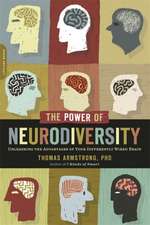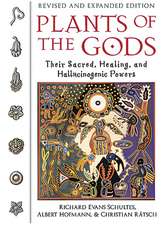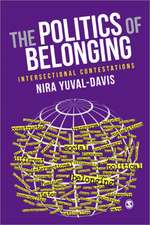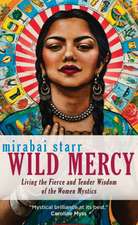Braiding Sweetgrass: Indigenous Wisdom, Scientific Knowledge and the Teachings of Plants
Autor Robin Wall Kimmereren Limba Engleză Paperback – 22 apr 2020
Drawing on her life as an indigenous scientist, a mother, and a woman, Kimmerer shows how other living beings-asters and goldenrod, strawberries and squash, salamanders, algae, and sweetgrass-offer us gifts and lessons, even if we've forgotten how to hear their voices. In a rich braid of reflections that range from the creation of Turtle Island to the forces that threaten its flourishing today, she circles toward a central argument: that the awakening of a wider ecological consciousness requires the acknowledgment and celebration of our reciprocal relationship with the rest of the living world. For only when we can hear the languages of other beings will we be capable of understanding the generosity of the earth, and learn to give our own gifts in return.
| Toate formatele și edițiile | Preț | Express |
|---|---|---|
| Paperback (2) | 59.58 lei 24-35 zile | +22.87 lei 7-11 zile |
| Penguin Books – 22 apr 2020 | 59.58 lei 24-35 zile | +22.87 lei 7-11 zile |
| Milkweed Editions – 31 aug 2014 | 118.61 lei 3-5 săpt. | +31.87 lei 7-11 zile |
Preț: 59.58 lei
Preț vechi: 70.42 lei
-15% Nou
11.40€ • 12.38$ • 9.58£
Carte disponibilă
Livrare economică 04-15 aprilie
Livrare express 18-22 martie pentru 32.86 lei
Specificații
ISBN-10: 014199195X
Pagini: 400
Dimensiuni: 129 x 198 x 23 mm
Greutate: 0.29 kg
Editura: Penguin Books
Colecția Penguin
Locul publicării:London, United Kingdom
Notă biografică
Robin Wall Kimmerer is a mother, scientist, decorated professor, and enrolled member of the Citizen Potawatomi Nation. She lives in Syracuse, New York, where she is a SUNY Distinguished Teaching Professor of Environmental Biology, and the founder and director of the Center for Native Peoples and the Environment.
Recenzii
Braiding Sweetgrassis the book we all need right now. It is a vision of a new world, of reciprocity, gratitude and seeing the living world for what it is: an abundance of gifts. Kimmerer is uniquely placed to braid indigenous knowledge with scientific learnings and she does it with kindness, ingenuity and a poet's prose. It is truly the text for our times.
An extraordinary book, showing how the factual, objective approach of science can be enriched by the ancient knowledge of the indigenous people. It is the way she captures beauty that I love the most - the images of giant cedars and wild strawberries, a forest in the rain and a meadow of fragrant sweetgrass will stay with you long after you read the last page
One of the most beautiful books I've ever read.
I give daily thanks for Robin Wall Kimmerer for being a font of endless knowledge, both mental and spiritual.
Reading this book was like looking at the world afresh. Radical, hopeful, honest and wise, Robin Wall Kimmerer has woven us a precious heartsong for difficult times
A journey that is every bit as mythic as it is scientific, as sacred as it is historical, as clever as it is wise
Robin Wall Kimmerer opens a sense of wonder and humility for the intelligence in all kinds of life we are used to naming and imagining as inanimate.
In a world where only six percent of mammalian biomass on the planet now comprises of wild animals, I longed for books that pressed me up against the inhuman, that connected me to an inhuman world.Braiding Sweetgrassby Robin Wall Kimmerer moved me to actual tears
With deep compassion and graceful prose, Robin Wall Kimmerer encourages readers to consider the ways that our lives and language weave through the natural world. A mesmerizing storyteller, she shares legends from her Potawatomi ancestors to illustrate the culture of gratitude in which we all should live
InBraiding Sweetgrass, botanist Robin Wall Kimmerer tackles everything from sustainable agriculture to pond scum as a reflection of her Potawatomi heritage, which carries a stewardship 'which could not be taken by history: the knowing that we belonged to the land.' . . . It's a book absorbed with the unfolding of the world to observant eyes?that sense of discovery that draws us in.
The gift of Robin Wall Kimmerer's book is that she provides readers the ability to see a very common world in uncommon ways, or, rather, in ways that have been commonly held but have recently been largely discarded. She puts forth the notion that we ought to be interacting in such a way that the land should be thankful for the people
Beautifully written . . . Anyone who enjoys reading about natural history, botany, protecting nature, or Native American culture will love this book
Professor and botanist Robin Wall Kimmerer knows that the answer to all forms of ecological unbalance have long been hidden in plain sight, told in the language of plants and animals, minerals and elements. She draws on her own heritage . . . pairing science with Indigenous principles and storytelling to advocate for a renewed connection between human beings and nature.
Kimmerer eloquently makes the case that by observing and celebrating our reciprocal relationship with the natural world, one can gain greater ecological consciousness.
Descriere
As a botanist, Robin Wall Kimmerer has been trained to ask questions of nature with the tools of science. As a member of the Citizen Potawatomi Nation, she embraces the notion that plants and animals are our oldest teachers. In Braiding Sweetgrass, Kimmerer brings these two lenses of knowledge together to take us on "a journey that is every bit as mythic as it is scientific, as sacred as it is historical, as clever as it is wise" (Elizabeth Gilbert).
Drawing on her life as an indigenous scientist, a mother, and a woman, Kimmerer shows how other living beings-asters and goldenrod, strawberries and squash, salamanders, algae, and sweetgrass-offer us gifts and lessons, even if we've forgotten how to hear their voices. In a rich braid of reflections that range from the creation of Turtle Island to the forces that threaten its flourishing today, she circles toward a central argument: that the awakening of a wider ecological consciousness requires the acknowledgment and celebration of our reciprocal relationship with the rest of the living world. For only when we can hear the languages of other beings will we be capable of understanding the generosity of the earth, and learn to give our own gifts in return.























